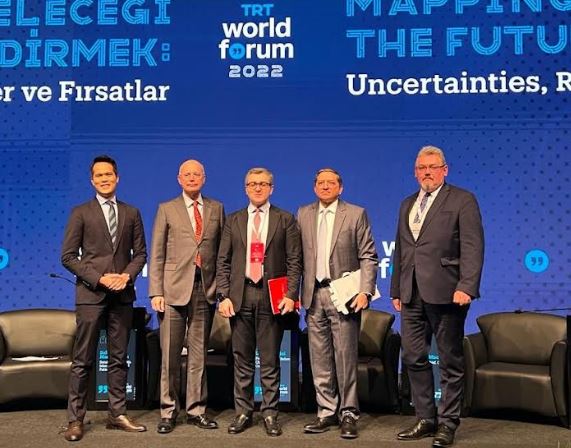ISTANBUL, DEC 10 /DNA/ – Senator Saleem Mandviwalla, Chairman Senate Standing Committee on Finance and Revenue participated in TRT World Forum held in Istanbul today.
Speaking at a panel titled, ‘Between Recession and Stagflation: The World Economy at the Crossroads’, the Senator elaborated on the dynamics of post pandemic global economy. He stated that the pandemic created pressure on already weak economies, therefore widening economic and social gaps. However, digital globalization offers multifold and multidimensional digital solutions for the boost of economy and other sectors.

The Senator highlighted that it would be impossible for many countries to avoid recession under current risks of stagflation. Therefore, it is imperative that production is encouraged, trade restrictions are avoided and debt relief efforts are enhanced to avoid recession; with debt distress spreading to middle-income countries, the risks to the global economy will amplify.
Learning from the past experiences, it is important to balance the need to ensure fiscal sustainability and mitigating the effects of overlapping crisis. In an extraordinary era of overlapping global crises, policymakers need to focus their efforts on countering inflation, boosting the supply of key food and energy commodities and clean energy to reduce dependency on fossil fuels, Senator Mandviwala added. The Senator reiterated that significant financial and investment commitments towards creating climate-smart regulatory frameworks, adjustment of incentive structures, and strengthening land-use regulations are need of the hour.
In a nutshell, the Senator emphasized on combined global efforts to protect the most vulnerable economies from surging oil and food prices, and considering mechanism for debt relief, to avoid a repetition of economic conditions of 1970s, He added that against the challenging backdrop of higher inflation, weaker growth, tighter financial conditions, and limited fiscal policy space, governments need to prioritize spending toward targeted relief for vulnerable populations. DNA

















